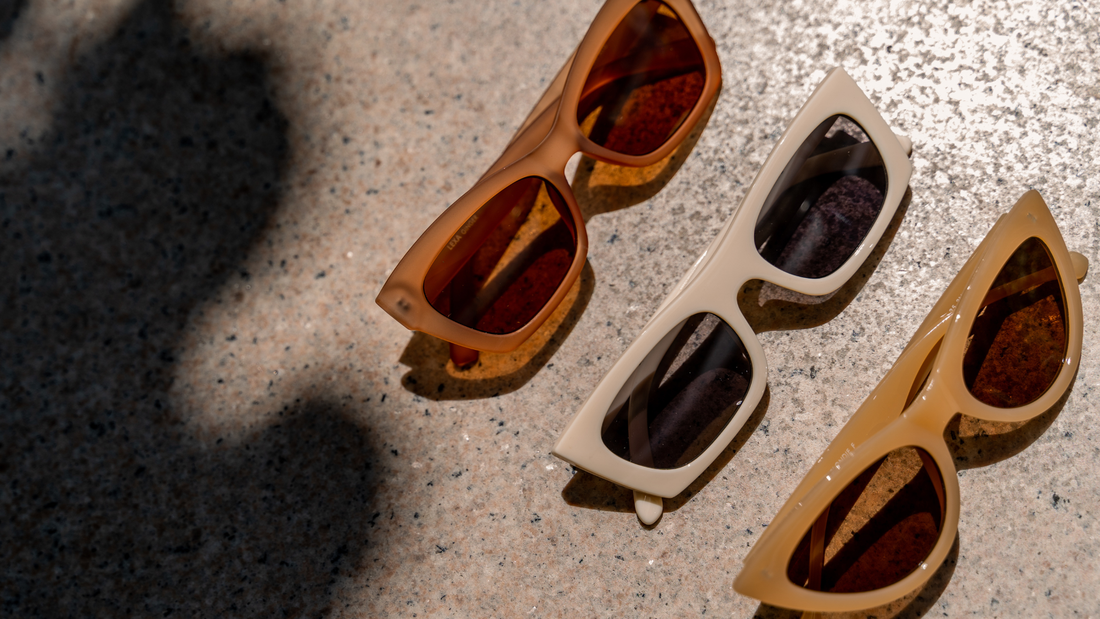
Fact or Fiction? Breaking Down the Blue Light Glasses Debate
Share
In recent years, blue light glasses have become a staple in homes and offices, touted as a must-have for anyone who spends extended time in front of digital screens. From preventing eye strain to improving sleep quality, these claims have led to a surge in demand. But how much of it is backed by science—and how much is marketing hype?
What Is Blue Light and Why Does It Matter?
Blue light is a high-energy visible (HEV) light emitted by both natural sources (like the sun) and artificial sources (like smartphones, tablets, and LED monitors). While blue light during the day can help regulate our sleep-wake cycle, overexposure—especially at night—has raised concerns.
Common sources of blue light exposure:
- Computer and phone screens
- LED and fluorescent lighting
- Televisions and tablets
The Claimed Benefits of Blue Light Glasses
Blue light glasses typically feature special lenses that filter out or absorb HEV blue light. Here are some commonly claimed benefits:
- Reduced Eye Strain
Proponents argue that these glasses help prevent digital eye strain, also known as computer vision syndrome. Symptoms include dry eyes, headaches, and blurred vision after prolonged screen use.
- Better Sleep Quality
Blue light can suppress melatonin production, the hormone responsible for sleep. By filtering blue light, these glasses help maintain healthy sleep cycles, especially when using screens before bed.
- Less Risk of Eye Damage
Some believe that long-term exposure to blue light may contribute to retinal damage and conditions like macular degeneration. Blue light glasses are marketed as a protective barrier.
What the Science Says: Separating Fact from Fiction
The research behind blue light glasses is mixed, and while some benefits have been observed, others are less conclusive.
- Eye Strain Relief:
Partial truth. While blue light filtering may reduce glare, experts suggest that eye strain is more likely caused by poor screen habits rather than blue light alone. Following the 20-20-20 rule—looking at something 20 feet away for 20 seconds every 20 minutes—can be just as effective.
- Sleep Improvement:
Likely true. Several studies support the idea that blocking blue light in the evening helps increase melatonin levels, leading to better sleep quality.
- Protection Against Eye Disease:
Still unclear. As of now, there’s no strong evidence linking blue light exposure from screens to long-term eye damage. More research is needed to support this claim.
Should You Use Blue Light Glasses?
If you frequently experience digital eye fatigue or struggle with falling asleep after late-night screen use, blue light glasses may offer some relief. However, they shouldn’t replace good screen habits, such as:
- Adjusting screen brightness
- Taking regular screen breaks
- Using screen filters or “night mode” on devices
Conclusion
While blue light glasses are not a miracle fix, they can be a helpful tool in supporting eye comfort and sleep quality—especially for those glued to screens day and night. With balanced expectations and healthy habits, they may just earn a place in your daily routine.
Daniel Walters Eyewear
Address: 19301 Ventura Blvd, Suite 203, Tarzana, CA 91356, United States of America
Phone: +1(855) 326-4359
Email: info@danielwalters.com
Make your eyewear count. Discover bold, functional designs now at www.danielwalters.com
